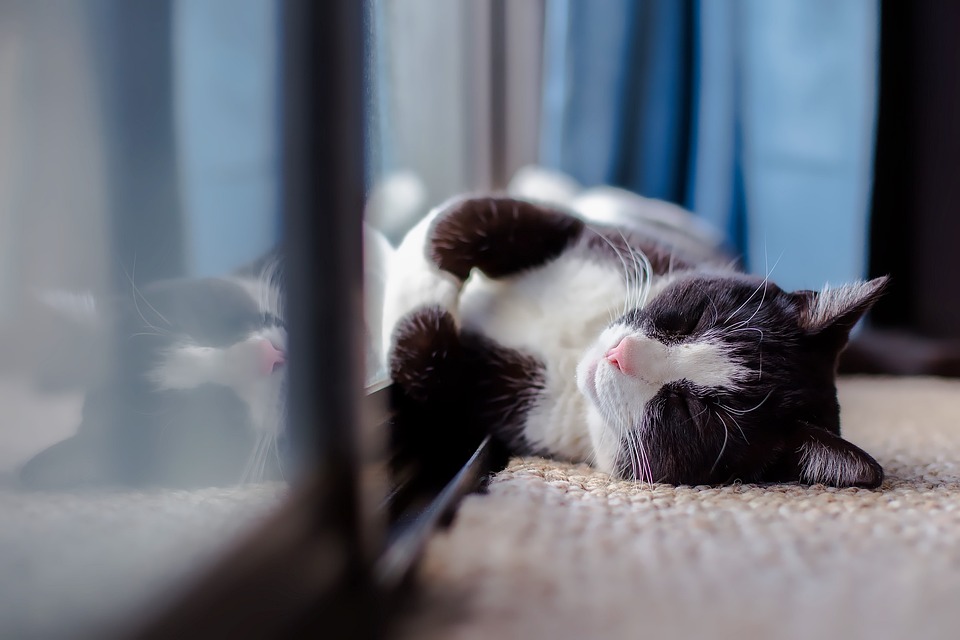Introduction:
As our feline companions age, they become more susceptible to various health issues, including dental disease. Just like humans, cats can develop oral health problems that can cause discomfort, pain, and even serious health complications if left untreated. In this article, we will discuss the signs of dental disease in senior cats and provide valuable tips on how to address and prevent these issues. Additionally, we have included a FAQs section to address common concerns cat owners may have.
Signs of Dental Disease in Senior Cats
1. Bad Breath:
– Foul odor from the mouth can indicate dental problems, such as gum disease or tooth decay.
– Persistent bad breath that persists despite regular brushing or dental care should be addressed promptly.
2. Difficulty Eating:
– Senior cats may experience pain while eating, leading to a loss of appetite or difficulty chewing.
– Watch for signs like dropping food, chewing on one side of the mouth, or favoring soft food over kibble.
3. Excessive Drooling:
– While occasional drooling is normal for cats, excessive drooling may indicate oral health issues.
– Drooling can be a sign of pain or discomfort associated with dental disease.
4. Pawing at the Mouth:
– Cats experiencing dental pain may paw at their mouths or rub their faces against objects.
– Pay attention to any signs of discomfort or sensitivity around the mouth area.
5. Red or Swollen Gums:
– Inflamed or reddened gums can be a sign of gingivitis or gum disease.
– Check your cat’s gums regularly for any signs of inflammation, bleeding, or tenderness.
6. Tooth Discoloration or Loss:
– Discolored or missing teeth can indicate advanced dental disease.
– Look for brown or yellow stains on the teeth, as well as any visible gaps or missing teeth.
Addressing and Preventing Dental Disease in Senior Cats
1. Regular Dental Exams:
– Schedule routine dental check-ups with your veterinarian to monitor your cat’s oral health.
– Professional cleanings may be necessary to remove plaque and tartar buildup.
2. Brushing your Cat’s Teeth:
– Establish a daily brushing routine using a toothbrush and toothpaste specially designed for cats.
– Start gradually and use positive reinforcement to make the experience more enjoyable for your cat.
3. Dental Diets and Treats:
– Feed your senior cat a balanced diet that promotes dental health, such as dental-specific cat food.
– Offer dental treats or toys designed to help reduce plaque and tartar buildup.
4. Regular Dental Care at Home:
– Maintain a regular dental care routine at home, including brushing, using dental rinses or wipes, and providing dental-friendly toys.
5. Professional Dental Cleanings:
– In more severe cases, your veterinarian may recommend a professional dental cleaning under anesthesia.
– This procedure allows for a thorough examination, cleaning, and potential extractions if necessary.
FAQs about Dental Disease in Senior Cats
Q1: How often should I brush my senior cat’s teeth?
A: Ideally, you should aim to brush your cat’s teeth at least once a day. However, if your cat resists or finds it stressful, aim for at least a few times a week.
Q2: Can dental disease in cats lead to other health problems?
A: Yes, dental disease can lead to serious health complications, including heart disease, kidney problems, and infections if bacteria from the mouth enter the bloodstream.
Q3: Are there any alternatives to brushing my cat’s teeth?
A: If your cat refuses to let you brush their teeth, you can try dental wipes, rinses, or dental treats. These can help reduce plaque and tartar buildup to some extent.
Q4: Should I be concerned if my cat’s gums bleed during brushing?
A: While slight bleeding may occur due to gum sensitivity, persistent bleeding or excessive bleeding may indicate gum disease or other dental issues. Consult your veterinarian if this occurs.
Q5: Is anesthesia safe for senior cats during dental cleanings?
A: Anesthesia can be safe for senior cats when administered by a skilled veterinarian. Pre-anesthetic blood work and monitoring during the procedure help ensure their safety.
Conclusion:
Maintaining good dental health is crucial for the overall well-being of senior cats. By recognizing the signs of dental disease and taking proactive steps to address and prevent these issues, you can help your feline friend enjoy a healthier and pain-free life. Regular veterinary check-ups and at-home dental care will go a long way in keeping your senior cat’s teeth and gums in optimal condition.








